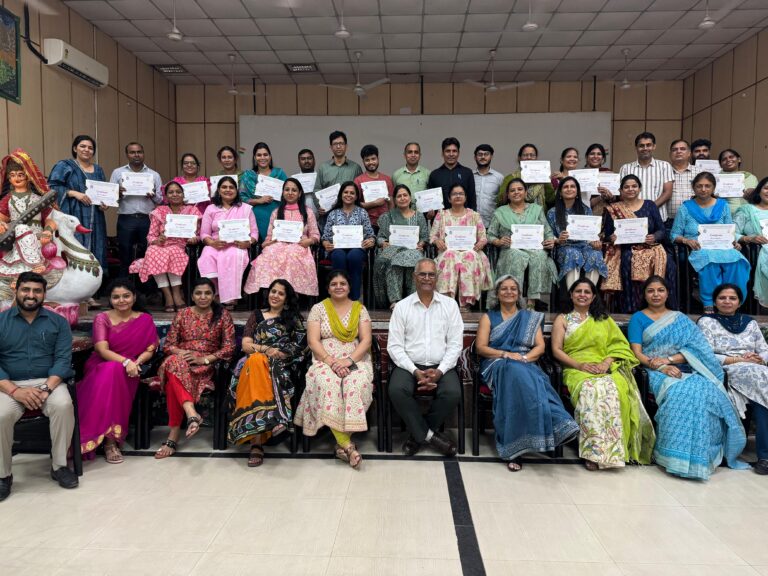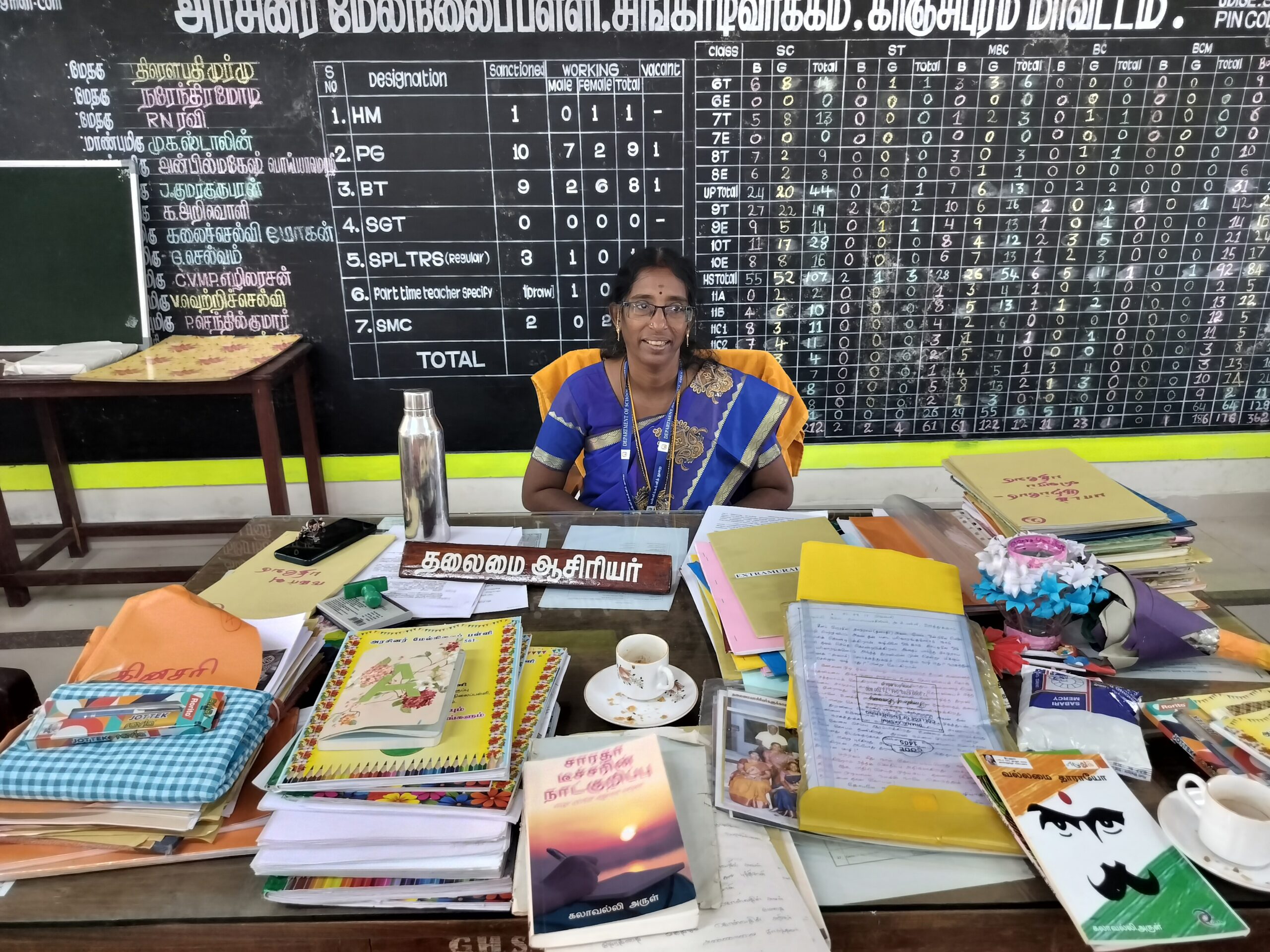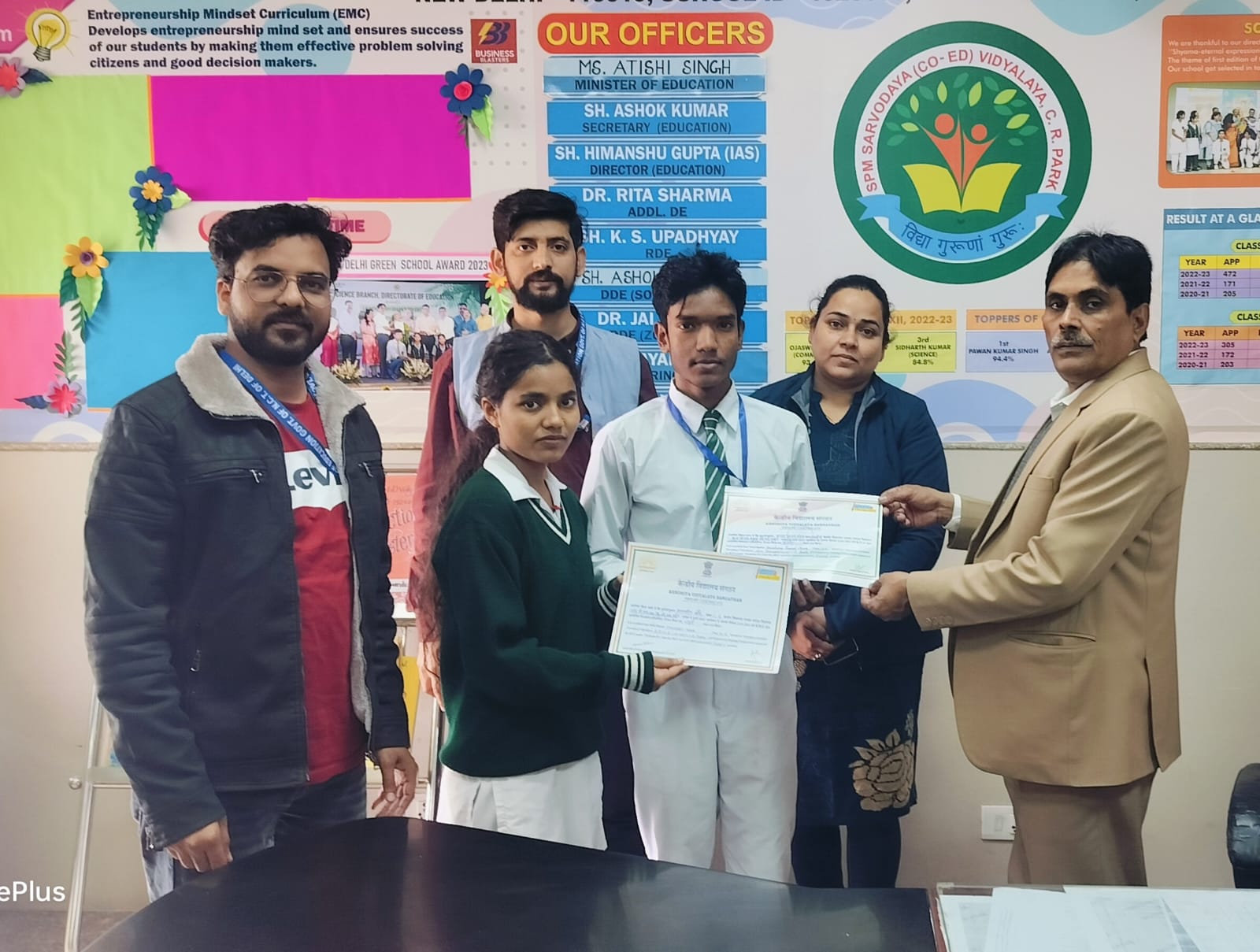Learning Outcome-Based Planning: LIC 15, MTs, and TDCs Co-learning Session
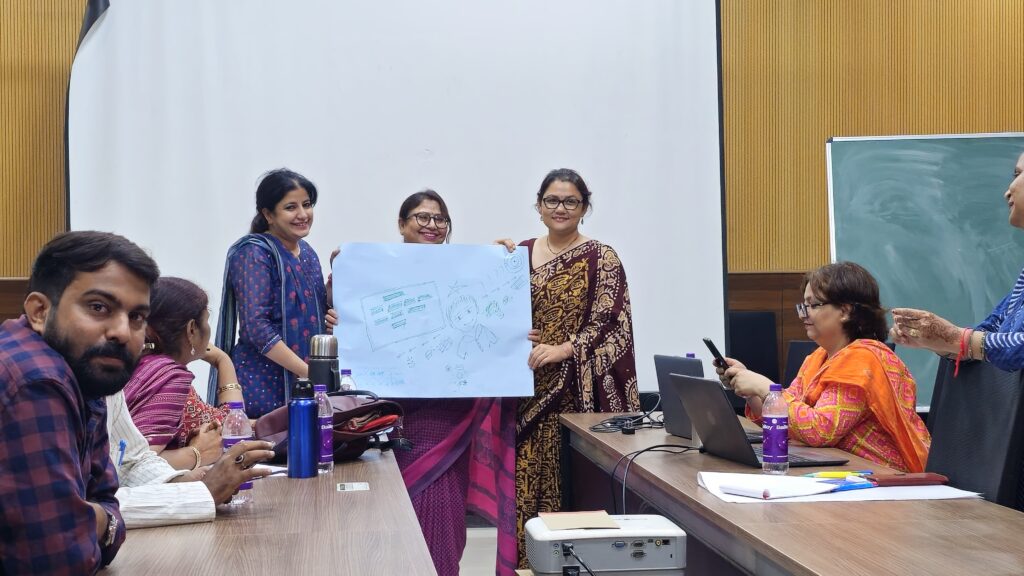
The ongoing Teacher Development Coordinator (TDC) program continues to innovate and strengthen education in Delhi, this time with the 15th Learning Improvement Cycle (LIC 15). Held on 22nd and 23rd August 2024 for Mentor Teachers (MT), and on 27th and 28th August 2024 for Teacher Development Coordinators (TDC) of Directorate of Education, Delhi schools with support of SCERT Delhi , the sessions focused on the critical theme of Learning Outcome-Based Planning.
LIC 15: The Importance of Learning Outcome-Based Planning
LIC 15 is aligned with the National Curriculum Framework for School Education (NCFSE) 2023, which emphasizes understanding curriculum aims, learning competencies, and clear learning outcomes. The main takeaway from LIC 15 is that effective lesson planning should center around specific learning outcomes, ensuring students meet targeted skills by the end of each lesson.
But why this focus? Learning Outcome-Based Planning ensures that teachers design their lessons with a clear goal—what students should know and be able to do. This approach shifts teaching from simple content delivery to a focus on skill acquisition and competency building.
Co-Learning Sessions: Fostering Collaboration and Knowledge Sharing
A key feature of LIC 15 was the co-learning sessions, designed to ensure that all participants—DIET faculty, Mentor Teachers, and TDCs—were familiar with the theme and strategies. SCERT’s core design team, with support from the Centre for Intrinsic Motivation (CIM), led the first round of DIET co-learning sessions. These sessions were cascaded to Mentor Teachers, who then facilitated the sessions for TDCs in their districts. TDCs, in turn, brought these strategies back to their schools.
These sessions weren’t just about introducing new concepts—they served as spaces for collaboration, where participants could share successes, ideas, and strategies for overcoming challenges. This collaborative approach helps build a strong community of educators committed to improving student learning outcomes.
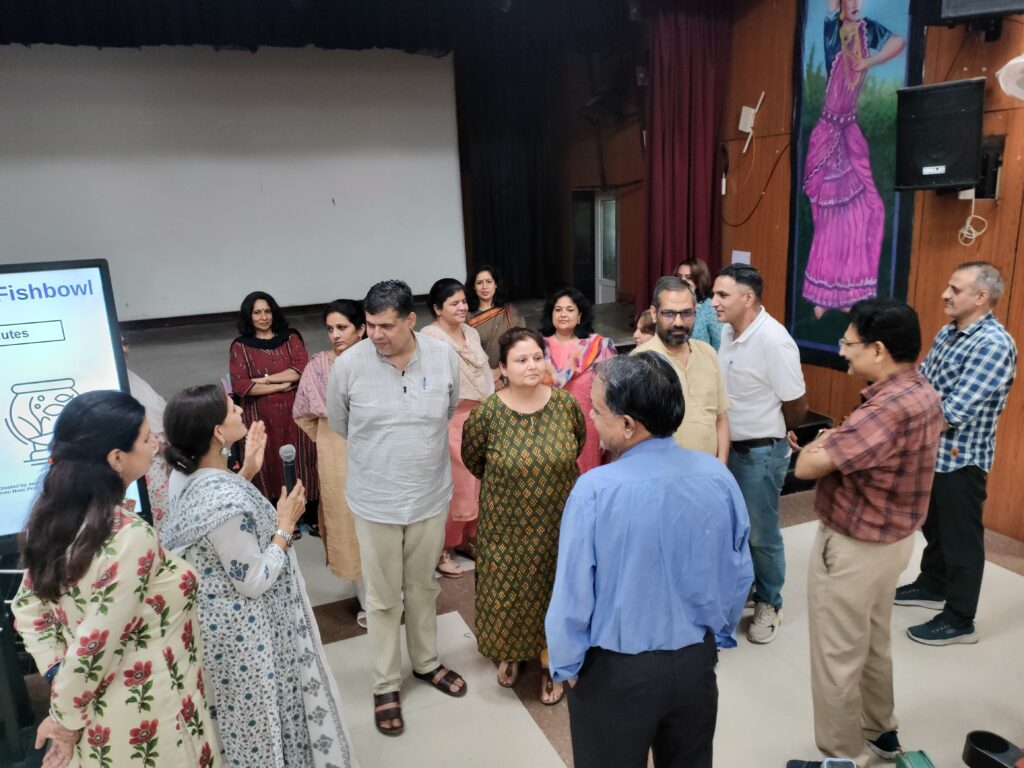
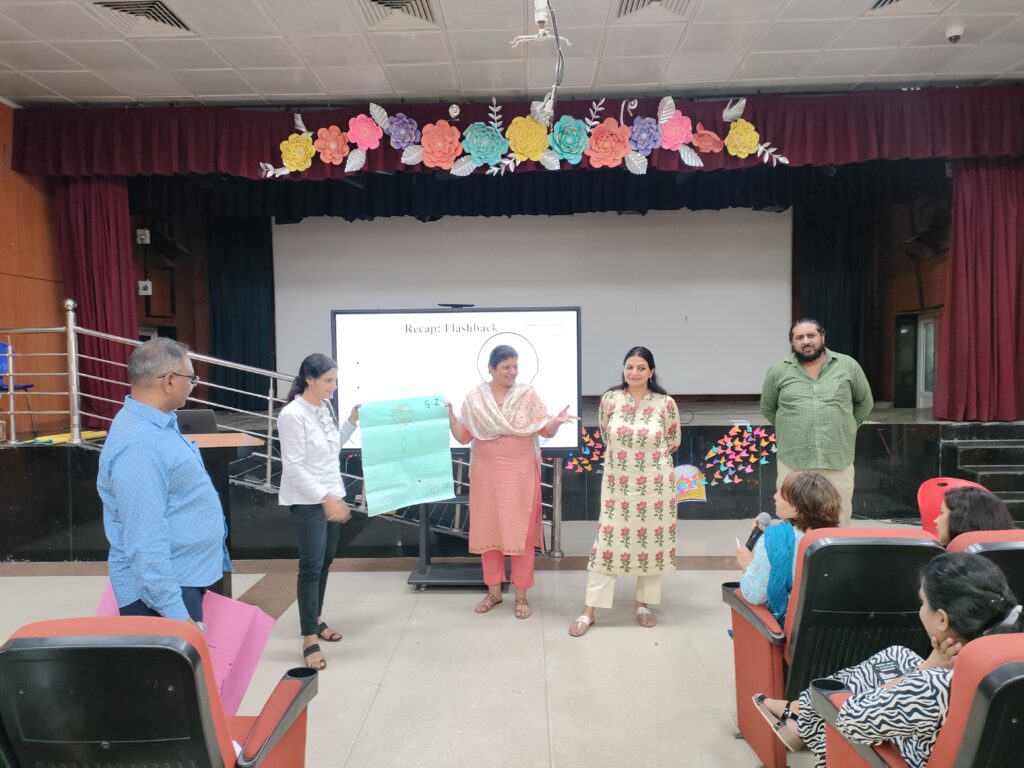
The ongoing Teacher Development Coordinator (TDC) program continues to innovate and strengthen education in Delhi, this time with the 15th Learning Improvement Cycle (LIC 15). Held on 22nd and 23rd August 2024 for Mentor Teachers (MT) Co-Learning Session, and on 27th and 28th August 2024 for Teacher Development Coordinators (TDC) C0-Learning Session of Directorate of Education, Delhi schools with support of SCERT Delhi , the sessions focused on the critical theme of Learning Outcome-Based Planning.
LIC 15: The Importance of Learning Outcome-Based Planning
LIC 15 is aligned with the National Curriculum Framework for School Education (NCFSE) 2023, which emphasizes understanding curriculum aims, learning competencies, and clear learning outcomes. The main takeaway from LIC 15 is that effective lesson planning should center around specific learning outcomes, ensuring students meet targeted skills by the end of each lesson.
But why this focus? Learning Outcome-Based Planning ensures that teachers design their lessons with a clear goal—what students should know and be able to do. This approach shifts teaching from simple content delivery to a focus on skill acquisition and competency building.
Co-Learning Sessions: Fostering Collaboration and Knowledge Sharing
A key feature of LIC 15 was the co-learning sessions, designed to ensure that all participants—DIET faculty, Mentor Teachers, and TDCs—were familiar with the theme and strategies. SCERT’s co-design team, with support from the Centre for Intrinsic Motivation (CIM), led the first round of DIET co-learning sessions. These sessions were cascaded to Mentor Teachers, who then facilitated the sessions for TDCs in their districts. TDCs, in turn, brought these strategies back to their schools.
These sessions weren’t just about introducing new concepts—they served as spaces for collaboration, where participants could share successes, ideas, and strategies for overcoming challenges. This collaborative approach helps build a strong community of educators committed to improving student learning outcomes.
District-Level Engagement: Scaling Learning Across Schools
The LIC 15 theme reached all 13 districts and 10 DIETs of Delhi, covering over 1,043 Directorate of Education (DoE) schools. The high participation rate—around 95% of participants attended—reflects the strong commitment to improving education quality.
At the district level, DIET facilitators led sessions for Mentor Teachers, where they engaged in discussions, exchanged feedback, and developed action plans. TDCs played a vital role in ensuring that the strategies were customised for their schools, creating a tailored approach to learning outcome-based planning for each unique student population.
Key Activities and Focus Areas in LIC 15
The co-learning sessions were packed with activities aimed at giving teachers the tools they need to implement learning outcome-based planning effectively. Key activities included:
- Recap of LIC 14: To ensure continuity, participants revisited key concepts from the previous Learning Improvement Cycle.
- Understanding Learning Outcome-Based Planning: Teachers explored the significance of this approach in boosting student learning and performance.
- Exploring NCERT Learning Outcomes: Participants were encouraged to align their lesson plans with documented learning outcomes from NCERT.
- Introduction to Understanding by Design (UbD): Teachers learned to design lessons using a backward design approach, starting with the end goal in mind.
- Lesson Planning Workshops: Participants created lesson plans step-by-step, incorporating feedback from peers to improve their strategies.
- Goal Ladder Activity: This student-centered tool helps break larger goals into smaller, manageable steps, making learning objectives clearer and more attainable for students.
A Culture of Continuous Improvement
LIC 15, along with the Mentor Teacher and TDC CLS sessions, marks a significant move toward building a culture of continuous improvement in Delhi’s schools. The focus on learning outcomes equips teachers to design more effective lesson plans, ultimately meeting the unique needs of their students.
As this cycle rolls out across schools in Delhi, it will be exciting to witness how these strategies impact student learning. The LIC program, with its focus on collaboration and actionable strategies, continues to play a crucial role in elevating the quality of education in the region.
Stay tuned for updates on how these plans are implemented and the successes that emerge as teachers and students work together toward achieving their learning goals!
More
articles


